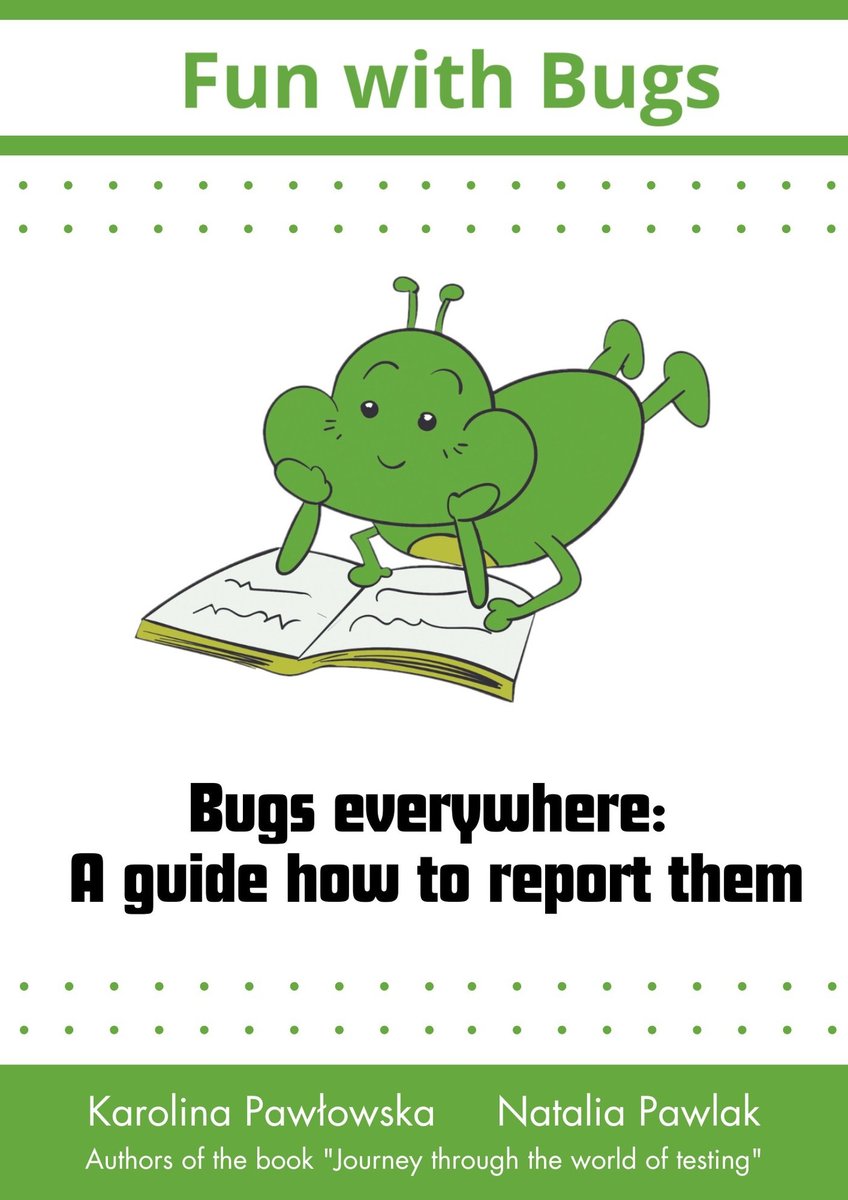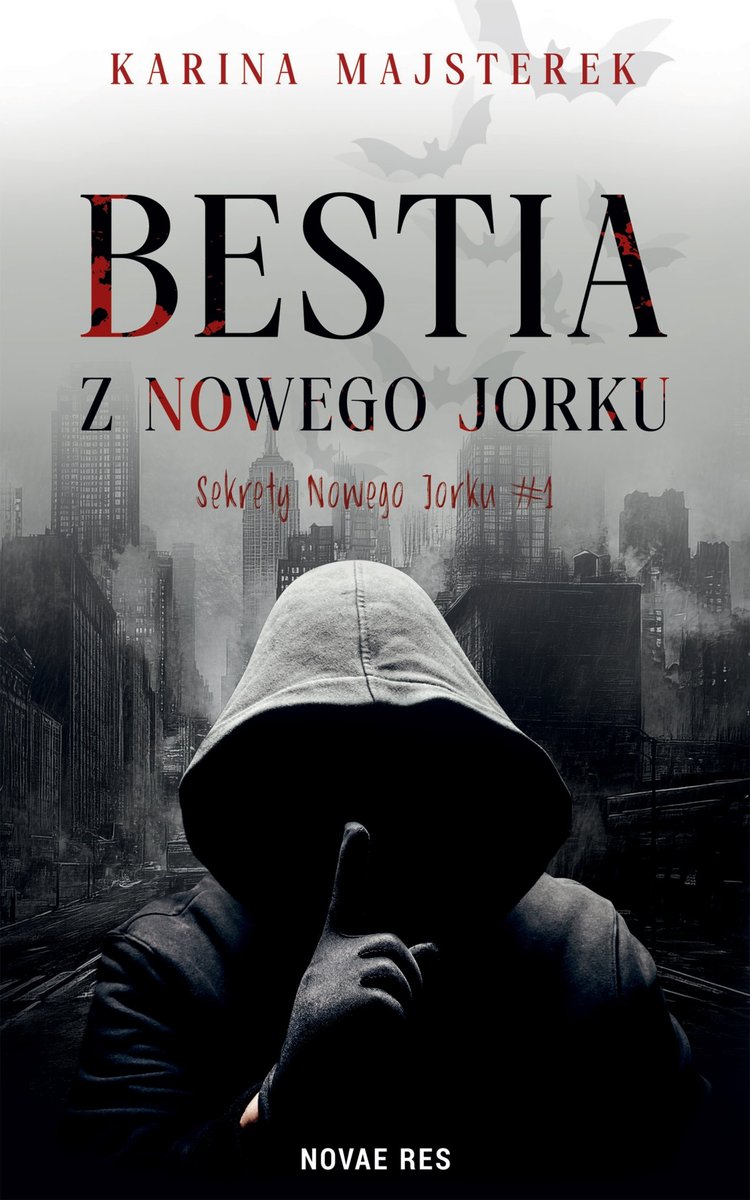Eastern treasure
| Szczegóły | |
|---|---|
| Tytuł | Eastern treasure |
| Rozszerzenie: | |
Eastern treasure PDF - Pobierz:
Pobierz PDF
Eastern treasure - podejrzyj 20 pierwszych stron:
Strona 1
Eastern Treasure
Samouczek języka angielskiego
dla średniozaawansowanych i zaawansowanych
w oparciu o powieść
Marek Kuczyński
1
Strona 2
Na okładce wykorzystano grafikę: Metro Praha (Praskie Metro)
Autor zdjęcia: Ralf Roletschek, Wikipedia
(Licencja Creative Commons)
Link do grafiki:
(20.02.2013)
Redakcja: Zespół
Copyright by © Marek Kuczyński
Opracowanie graficzne: DTP Studio GRACE – www.studiograce.pl
Druk i oprawa: SOWA – druk na życzenie® www.sowadruk.pl
ISBN 978-83-62352-10-4
Sieniawa Żarska, 2013
2
Strona 3
Table of Contents / Spis treści:
WSTĘP ............................................................................................................... 5
Part One.............................................................................................................. 9
Part Two ........................................................................................................... 17
Part Three ......................................................................................................... 25
Part Four ........................................................................................................... 39
Part Five ............................................................................................................ 53
Part Six .............................................................................................................. 67
Part Seven ......................................................................................................... 81
Part Eight.......................................................................................................... 95
Part Nine......................................................................................................... 109
Part Ten .......................................................................................................... 125
Part Eleven ..................................................................................................... 139
Part Twelve .................................................................................................... 153
Part Thirteen .................................................................................................. 173
Part Fourteen ................................................................................................. 191
Part Fifteen ..................................................................................................... 209
Part Sixteen..................................................................................................... 227
Part Seventeen ............................................................................................... 249
Part Eighteen ................................................................................................. 269
Part Nineteen ................................................................................................. 289
Part Twenty .................................................................................................... 309
Part Twenty-One ........................................................................................... 329
Part Twenty-Two .......................................................................................... 343
Part Twenty-Three ........................................................................................ 357
Part Twenty-Four .......................................................................................... 369
Answer Key / Klucz odpowiedzi .............................................................. 377
Grammar Index / Indeks gramatyczny .................................................... 419
Vocabulary Index / Indeks leksykalny ...................................................... 425
3
Strona 4
4
Strona 5
WSTĘP
Dla kogo jest ta książka?
Książka Eastern Treasure jest samouczkiem przeznaczonym dla osób
znających język angielski na poziomie średniozaawansowanym. Można go
również traktować jako materiał uzupełniający, przerabiany równolegle z
kursem na poziomie ‘intermediate’ oraz ‘upper intermediate’. Materiał tutaj
zawarty pomoże Użytkownikowi powtórzyć oraz wzbogacić wiedzę odnośnie:
a) angielskiego słownictwa oraz idiomów
b) gramatyki słowa (wzorce syntaktyczne wyrazów oraz słowotwórstwo)
c) struktur gramatycznych.
Dobierając słownictwo oraz zagadnienia gramatyczne, autor kierował się ich
przydatnością w komunikowaniu się w możliwie szerokim zakresie
tematycznym. Wziął również pod uwagę te zagadnienia, które najczęściej
sprawiają problemy zdającym różnorakie egzaminy z języka angielskiego na
poziomie ‘First Certificate’ i tym podobne. Korzystając ze swojego
doświadczenia dydaktycznego, autor ujął w książce również wiele elementów,
które często sprawiają problemy studentom pierwszego roku studiów
anglistycznych. Eastern Treasure można zatem traktować jako materiał
przydatny w przygotowywaniu się do niemal każdego egzaminu z języka
angielskiego. Z jednej strony, może on stanowić bardzo istotną część
materiałów pomocnych w przygotowaniu się do zdawania matury na poziomie
rozszerzonym, a z drugiej pomoże też ‘załatać’ luki studentom pierwszego
roku studiów anglistycznych. Takie cechy książka posiada dzięki temu, że
usystematyzowany sposób prezentacji materiału leksykalnego i gramatycznego
‘powtarza’ rzeczy bardziej podstawowe, a jednocześnie wzbogaca wiedzę
Czytelnika o nowe elementy. Można zatem z całą pewnością przyjąć, że każdy
nauczy się wielu nowych i bardzo przydatnych rzeczy.
Organizacja książki
Książka Eastern Treasure została napisana w podobnej formule, co
wcześniejsza książka autora dla bardziej początkujących – ‘Daughter’s Book’ (w
tomie The Very English You Need) i, z dydaktycznego punktu widzenia, stanowi
jej kontynuację. Podobnie zatem, Eastern Treasure jest powieścią
detektywistyczno-przygodową, podzieloną na rozdziały. Każdy rozdział
poprzedzony jest listą nowych słów oraz idiomów, które w nim wystąpią. Tekst
5
Strona 6
danego rozdziału składa się z nowych wyrazów i zwrotów oraz ze słownictwa
wprowadzonego w poprzednich rozdziałach. Odpowiednio zaprogramowana
powtarzalność słownictwa w tekście i ćwiczeniach gwarantuje dużą
skuteczność w jego przyswajaniu. Zaznaczmy przy tym, że przyswajanie to ma
miejsce bez potrzeby ‘wkuwania’ słówek z list, ponieważ powtarzają się one
wielokrotnie w książce i ogromna ich większość po prostu pozostaje w
pamięci. Takim sposobem Eastern Treasure wprowadza ok. 850 słów i
wyrażeń. Przy doborze słownictwa zakładano, że Użytkownik posiada już
podstawową wiedzę leksykalną, choćby tę prezentowaną w ‘Daughter’s Book’.
Podobnie, a więc w kontekście, prezentuje się struktury gramatyczne,
które następnie są wyjaśnione i usystematyzowane w ćwiczeniach. Konstrukcje
gramatyczne również powtarzają się wielokrotnie w tekście i w ćwiczeniach, co
ułatwia ich przyswojenie i utrwalenie. W książce wprowadzono ok. 300
struktur gramatycznych. Są to elementy niezbędne do prawidłowego
wypowiadania myśli w sposób bardziej akademicki oraz potrzebne każdemu,
kto zamierza zdawać jakiekolwiek egzaminy.
Po każdym tekście występuje najpierw ćwiczenie utrwalające
wprowadzone nowe słownictwo. Ćwiczenie to zawiera zarówno pojedyncze
wyrazy, jak i idiomy. Drugie ćwiczenie koncentruje się tylko na nowych
idiomach i wyrażeniach. Trzecie ćwiczenie jest najdłuższe w rozdziale i składa
się z dwóch części: wyjaśnienie kilkunastu elementów leksykalno-
gramatycznych, które pojawiły się w tekście oraz ćwiczenie utrwalające. Są to
przeważnie elementy z pogranicza idiomatyki i gramatyki, które często nazywa
się wzorcami syntaktycznymi wyrazu (np., czasownik to accuse - oskarżać,
wymaga użycia formy of doing sth, a nie: about doing sth czy też to do sth).
Ćwiczenie czwarte poświęcone jest już szerzej określonej problematyce
gramatycznej (np. dany czas lub wyrażanie ilości). Pozostałe ćwiczenia mają za
cel powtórzenie prezentowanych we wcześniejszych rozdziałach wyrazów,
idiomów oraz konstrukcji gramatycznych. Forma ćwiczeń jest zróżnicowana, a
jednocześnie podobna do tych, jakie występują na różnorakich egzaminach.
Trzeba pamiętać, że ta część rozdziału (revisions) jest co najmniej tak samo
ważna, jak pozostałe, jeśli nie bardziej. W czterech ostatnich rozdziałach
Użytkownika zachęca się również do odgadywania nowych słów z kontekstu.
Na końcu książki podano klucz do wszystkich ćwiczeń. W
odpowiedziach do ćwiczeń powtórzeniowych wytłuszczono kluczowe
elementy (wyrazy, elementy gramatyczne), które ułatwią ich odnalezienie w
książce w celu powtórzenia danej struktury. Dodatkowym ułatwieniem będzie
indeks wszystkich słów i elementów gramatycznych. Jeżeli, na przykład, z
6
Strona 7
klucza wynika, że mylnie wykonano tłumaczenie zdania On unikał płacenia
podatków, gdzie za prawidłowe podano zdanie He avoided paying taxes,
(Użytkownik napisał np. He avoided to pay taxes), to znaczy, że w indeksie należy
odszukać wytłuszczony element avoid, sprawdzić, w którym rozdziale był
prezentowany i ponownie zapoznać się w książce z wyjaśnieniami. Numer
rozdziału, w którym prezentowany jest dany element, podano przy nim w
postaci cyfry.
Organizacja pracy z książką
Na koniec zaznaczmy, że Eastern Treasure to również książka
sensacyjno-przygodowa. Do takiej nauki języka angielskiego chyba nie trzeba
zbytnio zachęcać! Oprócz pracy nad językiem jednocześnie fajnie się bawimy i
śledzimy losy bohaterów. Pracujmy więc na zasadzie serialu w systemie
cotygodniowym i pamiętajmy, by w danym tygodniu przerobić jeden cały
rozdział. Taka praca z książką zapewni najskuteczniejszą naukę i przyswojenie
zawartego w niej materiału. Algorytm wykorzystany przy programowaniu
powtarzalności słów i konstrukcji jest obliczony na pracę w takim właśnie,
cotygodniowym systemie. Praca niesystematyczna nie będzie więc już tak
skuteczna. Aby skuteczność ta była optymalna, proponuję następujący sposób
korzystania z książki:
Dzień pierwszy: Czytamy nowy rozdział opowiadania. Sprawdzamy
wszystkie nowe słowa i wyrażenia (których nie znamy) oraz te, które były już
wcześniej wprowadzone, lecz je zapomnieliśmy.
Dzień drugi: Ponownie czytamy tekst (wciąż sprawdzając słowa, które
znów zapomnieliśmy) oraz wykonujemy dwa pierwsze ćwiczenia (‘Activity one’
i ‘Activity two’).
Dzień trzeci: Zapoznajemy się z wyjaśnieniami oraz wykonujemy
ćwiczenia z ‘Activity three - phrases and constructions’ oraz ‘Activity four -
focus on structure’.
Dzień czwarty: Wykonujemy pozostałe ćwiczenia rozdziału (są to
ćwiczenia powtórzeniowe, początkowo przeważnie pod nagłówkiem ‘Activity
five’).
Dzień piąty: Wracamy do tych elementów z ćwiczeń
powtórzeniowych, które przysporzyły nam najwięcej problemów. Sięgamy do
dodatkowych źródeł (podręczniki do gramatyki z ćwiczeniami, monojęzyczne
słowniki z przykładami słów w kontekście, czy nawet konsultacja drugiej
osoby), aby ugruntować wiedzę.
7
Strona 8
Pamiętając, że tydzień nauki składa się z pięciu dni, poświęćmy pracy z
tą książką godzinę dziennie. Dotyczy to przede wszystkim tych użytkowników,
którzy znają język na poziomie średniozaawansowanym. Osoby zaawansowane
mogą tempo to dostosować do swoich potrzeb, a więc w ciągu tygodnia
przerobić więcej, niż jeden rozdział. Zachęcając uczących się języka
angielskiego do korzystania z Eastern Treasure, życzę wszystkim
Użytkownikom sukcesów w tej nauce.
Marek Kuczyński
Uwaga:
W częściach 1-20, przed danym rozdziałem podano nowe
słowa i wyrażenia, które w nim wystąpią. Należy zapoznać się z nimi
przed przystąpieniem do czytania tekstu. Te jednostki leksykalne
(wyrazy, idiomy etc.) będą później w zaprogramowany sposób pojawiać
się w kolejnych częściach, tak aby podczas przerabiania książki
jednocześnie powtarzać wprowadzony wcześniej materiał. Taka
powtarzalność słownictwa ma na celu ułatwienie Czytelnikowi
‘bezbolesne’ nabycie dużej ilości materiału poprzez czytanie powieści i
wykonywanie ćwiczeń powtórzeniowych. ‘Bezbolesne’ w tym
znaczeniu, że nie trzeba uczyć się na pamięć list słówek, lecz jedynie
regularnie przerabiać książkę.
8
Strona 9
PART ONE
above, abroad, to affect, alive, baggage, to be at war with someone, being, to board (a plane),
a captain, a century, to compare, a concern (worry), a disaster, a doll, an earthquake, an
enemy, eventually, to fall asleep, to fasten, favourite, to get sth back, a gift, in an hour, in
order to, in spite of, in the front, an island, a jewel, ... kilometres per hour, to let sb down, to
let sb know, let’s (not) ..., to look like, to look out of, luggage, to mention, on behalf of,
pleased, to practise, a priest, to put on weight, to put out (a cigarette), safety, sight, silence,
skill, smart, speed, strength, to stress, to take care of, to take off (of aeroplane), until, a
weapon, weight
(note: In this book the Japanese characters are referred to by their first name
and their surname, not the other way round)
When all the passengers had boarded the plane, the door was shut and
everybody was waiting for the flight to begin. The air-hostess said over the
microphone: ‘Welcome on board our Boeing 747 on our flight from Tokyo to
Chicago. We shall shortly be taking off - please fasten your seat belts, put out
your cigarettes and put your hand baggage under your seat. In an hour we will
be serving meals and drinks. On behalf of the whole crew I would like to wish
you a pleasant flight’. After some time the plane began to move, then took off
and in a while disappeared among the clouds.
The passengers looked out of their small, round windows in order to
catch the last sights of their country. After some time the captain spoke to the
passengers: ‘Welcome on board, ladies and gentlemen. My name is Masu
Hugara and I am the captain of this plane. We shall be flying at a speed of
eleven hundred kilometres per hour and we shall be over ten kilometres above
the earth. We shall arrive in Chicago at ten minutes past eleven, local time. And
for those of you who have never been abroad before - I am pleased to let you
know that earthquakes are not as common in America as they are in Japan – so
there is no need to expect the same that happened yesterday on Honshu. But
let’s not talk about disasters. You are now going to be served meals and drinks.
Enjoy your flight.’
There was an old man with a beard sitting at the front of the plane and
a priest next to him. Behind them there were a few soldiers, and a small
Japanese girl was sitting next to them. She looked like a little doll when you
compared her to the soldiers. At the back of the aeroplane there was a
Japanese man, dressed very smartly. He looked very calm, with strong body
9
Strona 10
build and silence seemed to be his favourite way of behaving. His eyes were
fixed on one point and his face did not move. You could have had the
impression that you were looking at a monument.
But it was not a monument. It was a man and he was very alive. If you
already knew him better you would probably know that he is extremely alive. His
name was Jet Itosu. He did not have much luggage with him because he
considered luggage to be a waste of space. For a Japanese, a waste of space is a
disaster. In order to avoid carrying unnecessary weight with him, Itosu only
took articles of basic needs with him, and whenever he needed something, he
would just buy it. He had just left Honshu, the island of his origin.
His house had not been affected by the earthquake that the captain had
mentioned, but he had another concern on his mind. The Honshu Jewel - that
was his concern - a jewel which two centuries before the Emperor had given to
his family as a gift. The jewel had been kept by the Itosu family until the
Second World War. Japan had been at war with the United States. Japan had
lost the war because it did not have nuclear weapon. This meant no safety for
the Japanese people and their property. And, it must be stressed, American
soldiers liked other people’s property when they defeated their country at war.
In this situation the Honshu Jewel was stolen by the soldiers in 1945. When
news had come in that the jewel was being kept in Chicago, Jet had a new job
to do. Bring the jewel back to Honshu.
In spite of his strong personality, Jet eventually fell asleep. Although
being awake was his favourite condition, he needed to rest. He knew that his
health was his strongest weapon against his enemy. If his job was to fight and
get their lost property back, he knew that he must take care of himself. But he
was not the kind of man who would forget about it. He always remembered to
take care of himself. He had been practising karate since he was seven years
old. His grandfather had been famous all over the world for his skills as a
karate champion. He, too, was very good. He was one of the best on Honshu.
Everybody believed in his skills. Everybody trusted him as a family member.
He was the one chosen for this job.
He was married - his wife was a nurse in a hospital. He had two
daughters who loved their mother and father. He was a lovely father, but now
he was bad because he was away from home again and everybody was missing
him. He was a professional soldier working in special units. The previous year
he had become the trainer of the new recruits who enlisted in the army.
Everybody in the army was afraid of him - especially of the strength and speed
of his fists. And he had a very strong kick, too. If he was angry today, America
10
Strona 11
was in trouble. The problem was that he wanted very much to get the jewel
back. That meant that he would be ready to do anything. If an angry Japanese
karate champion goes abroad, everybody should stay out of his way if they
want to stay alive. He wanted very much to do his job, because he was acting
on behalf of his family. It would be a disaster if he let them down. He simply
couldn’t.
The silence inside the aeroplane meant that most of the passengers had
probably fallen asleep. One man, sitting next to Itosu, had been smoking and
was now putting out his cigarette. He was now beginning to eat a hamburger.
‘This will affect your health’ - Itosu thought to himself – ‘you don’t need an
earthquake or any other disaster to kill yourself. Just keep smoking and putting
on weight, man.’ Itosu had the habit of comparing other people to animals
from ‘The Muppet Show’. This man looked like Piggy to him.
The aeroplane was approaching Chicago. The air-hostess told them to
put out their cigarettes and fasten their seat belts again – safety regulations. In
another ten minutes the aeroplane would be landing.
Activity one - focus on lexis
Put the following words in the sentences below:
above, affects, alive, board, compare, disaster, earthquake, enemy, fasten, favourite, order, per, behalf, priest,
weight, skills, speed, spite, stressed, care, until, weapon
1. I go to work in .................... to earn money.
2. Guns and other kinds of .................... were used during that war.
3. You will put on .................... if you keep eating so many hamburgers every day.
4. Chicago and Tokyo are very different cities. It is difficult to .................... them.
5. Please .................... your safety belts - we will shortly be taking off.
6. There were over two hundred people on .................... the aeroplane.
7. We are flying 10 kilometres .................... the ground.
8. The recent .................... killed a lot of people and destroyed many buildings.
9. It must be .................... that your participation is very important.
10. Why are you driving so fast? You are doing 160 kilometres .................... hour.
11. We were driving at a .................... of 120 kilometres per hour.
12. In .................... of his very young age, he was very intelligent.
13. The weather .................... our moods. On sunny days we feel happy, but when it rains we
feel sleepy.
14. This is a very responsible job. You need a lot of experience and .................... in dealing with
other people.
15. He was ...................., although initially we had thought he was dead.
16. I would like to congratulate you on your achievements on .................... of the President -
said the Minister to the Professor on his hundredth birthday.
11
Strona 12
17. Green is my .................... colour. It always calms me down and gives me peace of mind.
18. During the war Poland defeated its .................... but it was not able to take advantage of the
victory.
19. Take .................... of my son while I’m away - said Mr Brown to his brother before leaving
for the USA.
20. If all computers in the firm fail it will be a .................... . The boss will kill us.
21. Wait here .................... I come back - a man said to his dog before entering a shop.
22. When they decided to get married, they saw the .................... to discuss the details of the
wedding.
Activity two - idioms and phrases
Study the following expressions and then complete the sentences below
to be at war with... - być w stanie wojny z... eventually - w końcu
to fall asleep - zasnąć to get sth back - odzyskać coś
in an hour - za godzinę in order to - aby; w celu
in spite of - pomimo at the front - z przodu, w przedniej części
... kilometres per hour - kilometrów na godzinę to let sb down - zawieść kogoś, sprawić komuś zawód
to let sb know - powiadomić kogoś let’s go - chodźmy; let’s not go - nie idźmy
to look like - wyglądać tak jak to look out of - wyglądać przez
on behalf of - w imieniu to put on weight - przybierać na wadze
to put out a cigarette - zgasić papierosa to take care of - zadbać o..., uważać na...
to take off - startować (o samolocie) until - aż (Wait until I come back - Czekaj aż wrócę)
1. My car can do up to two hundred kilometres per .................... .
2. He took the exam three times until he .................... passed it.
3. I have put .................... some weight. I weigh three kilograms more than a month ago.
4. I’m not ready yet. I will be ready .................... ten minutes.
5. Iraq was then .................... war with Iran, so you could not just walk across the border.
6. The aeroplane gained speed, .................... off and disappeared among the clouds.
7. I must pass that exam. I can’t let my parents .................... this time.
8. The Minister could not come here personally, so I will participate .................... his behalf.
9. .................... me know when you are ready and I’ll come to take you to town.
10. I must learn English in order .................... communicate with people from England.
11. I will learn English .................... I can speak fluently. I won’t stop before that.
12. In .................... of his difficult situation, he was full of optimism.
13. I lost $200 in the last poker game, but tomorrow I hope to .................... it back.
14. If we don’t take care .................... our environment, the planet will soon die.
15. He looks just .................... his brother. They both have dark hair and blue eyes.
16. John could not see very well what was written on the blackboard, so the teacher told him
to sit at the .................... of the classroom.
17. When she heard the noise she looked .................... of the window, but didn’t see anybody.
18. The book was so boring that he .................... asleep while reading it.
19. .................... try another exercise - this one is too difficult.
20. You shouldn’t be smoking a cigarette here. Please put it .................... .
12
Strona 13
Activity three - phrases and constructions
First study these:
being - bycie, forma gerundialna czasownika to be.
I was just thinking about being an engineer - Właśnie myślałem o tym, jak to jest kiedy się jest inżynierem
(o byciu inżynierem).
He insisted on being taken to the cinema - Nalegał, by go zabrano do kina (na bycie zabranym do kina).
Giving is better than being given to - Dawanie jest lepsze niż kiedy nam się daje (niż ‘bycie dawanym’).
in - za (o czasie)
Nie mylić z for (przez, od)
in twenty minutes’ time - za dwadzieścia minut; for twenty minutes - od dwudziestu minut
in two days’ time - za dwa dni; for two days - od dwóch dni, przez dwa dni, na dwa dni
in order to - aby, w celu by
Nie mylić z so that, które ma podobne znaczenie, lecz inną funkcję gramatyczną.
In order to używamy najczęściej w przypadkach, kiedy cel działania skierowany jest na podmiot:
He earned money in order to survive - Zarabiał pieniądze, by przetrwać (cel skierowany na niego
samego).
So that używamy w zasadzie w sytuacjach, kiedy cel działania jest skierowany na osoby inne niż
podmiot:
He earned the money so that you could survive - Zarabiał pieniądze, byś ty mógł przeżyć (cel
skierowany na kogoś innego, niż on sam).
in spite of - pomimo
Nie mylić z despite, które ma identyczne znaczenie, lecz występuje bez of:
In spite of this, we can continue = Despite this, we can continue (a nie: despite of this).
at the front - z przodu, w przedniej części
Nie mylić z in front of - przed
There is a car in front of the house - Przed domem jest samochód.
He was standing at the front of the classroom - Stał z przodu klasy.
let’s (not) + czasownik - forma wyrażająca tryb rozkazujący w osobie pierwszej liczby mnogiej
(let’s = let us):
Let’s read it - Przeczytajmy to Let’s not read it lub Don’t let us read it - Nie czytajmy tego
Let’s wait - Zaczekajmy Let’s not wait lub Don’t let us wait - Nie czekajmy
13
Strona 14
Konstrukcję tę można też stosować dla innych osób:
Let me do it - Niech no to zrobię Don’t let me do it - Niech tego nie robię
(nie pozwól mi)
Let them come - Niech przyjdą Don’t let them come - Niech nie przychodzą
Let her decide - Niech ona zdecyduje Don’t let her decide - Niech ona nie decyduje
To look like - wyglądać tak jak
Nie mylić z to like - lubić lub to be like - być takim jak
He looks like you - On wygląda tak jak ty.
Does he look like you? - Czy on wygląda tak jak ty?
What does he look like? - Jak on wygląda (jak co)?
He likes you - On ciebie lubi
Does he like you? - Czy on ciebie lubi?
Who does he like? - Kogo on lubi?
He is like you - On jest taki jak ty.
Is he like you? - Czy on jest taki jak ty?
What is he like? - Jaki on jest (jak co)?
until - aż, dopóki
Podobnie jak w zdaniach czasowych z when lub as soon as, również po until nie używamy czasu
przyszłego, nawet gdy mówimy o przyszłości. Używamy czasu teraźniejszego, zaś w mowie
zależnej przeszłego:
Stay here until I come back - Zostań tutaj aż wrócę. (nie zaś until I will come back)
I told you to stay there until I came back - Powiedziałem ci byś tam pozostał, aż wrócę. (W
następstwie czasu typu I told you that..., I said that... etc. czas teraźniejszy zamienia się na
przeszły, stąd też until I come back uległo zmanie na until I came back).
would - określa dany zwyczaj w przeszłości
When our grandfather lived, he would always get up at five o’clock and watch the sunrise - Kiedy dziadek
żył, zawsze wstawał o piątej i oglądał wschód słońca.
They would play poker until they fell asleep - Grywali w pokera aż pozasypiali (taki był ich zwyczaj).
W tym przypadku would ma podobne znaczenie do used to:
He used to get up at five and watch the sunrise.
They used to play poker until they fell asleep.
Istnieje jeszcze znaczenie would not dla przeszłości: oznaczające, że ktoś nie chciał czegoś
zrobić:
I don’t know why she left. She wouldn’t tell me.
Nie wiem czemu odeszła. Nie powiedziała (Nie chciała powiedzieć).
14
Strona 15
I couldn’t come. The car wouldn’t start.
Nie mogłem przyjechać. Samochód nie chciał zapalić (dla czasu teraźniejszego powiemy the car
won’t start - samochód nie chce zapalić, nie zaś the car doesn’t want to start).
Then select the right answer:
1. - What .......... he like reading?
- I think westerns are his favourite books.
A is B does C has D would
2. I will continue this work until I .......... .
A will not finish B will finish C don’t finish D finish
3. .......... his poor condition, he continued his work.
A Despite B In spite C Because D Because of
4. I don’t want to help them. .......... them do it by themselves.
A Let’s B Let us C Let D Don’t let
5. I invited her to my birthday party .......... you could meet her.
A in order to B so that C to let D until
6. She .......... my sister. They both have long blond hair and blue eyes.
A is like B likes C looks like D like
7. Now I’m going to stay at the seaside .......... two weeks and then I’ll be going home.
A for B in C on D since
8. Wait here until I come back. I’ll be back .......... about ten minutes.
A for B in C on D since
9. I used .......... very early when I was younger.
A get up B getting up C to get up D to getting up
10. .......... a victim of a mugging is the worst thing I can imagine.
A Be B To be B To being D Being
15
Strona 16
Activity four - focus on structure
First read the notes on The Past Perfect (czas zaprzeszły).
Czas zaprzeszły stosujemy, by wyrazić fakt, że coś miało miejsce wcześniej, niż inne
zdarzenie w przeszłości. W zdaniu:
I was ill because I had eaten too much ice cream.
choroba była następstwem zjedzenia dużej ilości lodów, co miało miejsce jeszcze przed samą
chorobą. Jako że I was ill już jest podane w czasie przeszłym (gdyż opowiadamy o przygodach,
które przydarzyły się w przeszłości), musimy wskazać, że jedzenie lodów odbywało się jeszcze
wcześniej, a więc w czasie przeszłym w stosunku do przeszłego - czyli zaprzeszłym w stosunku
do chwili obecnej.
Podobnie też The Past Perfect stosujemy w następstwie czasu:
I have seen him ale I said that I had seen him
I did it yesterday ale I said I had done it the previous day.
Czas zaprzeszły jest również używany w opowiadaniach. Jeśli narracja podana jest w
czasie przeszłym (a zazwyczaj tak jest), np. he was sitting at the back of the plane, his name was Jet
Itosu, to wydarzenia mające miejsce w czasie wcześniejszym wobec opisywanej w narracji akcji
(np. przy opisie osoby bohatera można podać, co robił w przeszłości) podajemy w czasie
zaprzeszłym, np. he had never been abroad before.
Exercise:
Put the verbs in brackets in the correct form:
1. He was upset because he (fail) .................... his exam.
2. I thought you (see) .................... that man before.
3. I (get up) .................... at seven yesterday.
4. I didn’t have any money on me because I (be) .................... robbed.
5. He was sad because his girlfriend (leave) .................... him.
6. Two weeks ago I (buy) .................... a new car.
7. I had to sell my car because I (buy) .................... a new one.
8. His name was Itosu. He (never see) .................... America before.
9. His name is Itosu. He (never see) .................... America before.
10. Yesterday’s dinner (not taste) .................... good at all.
16










